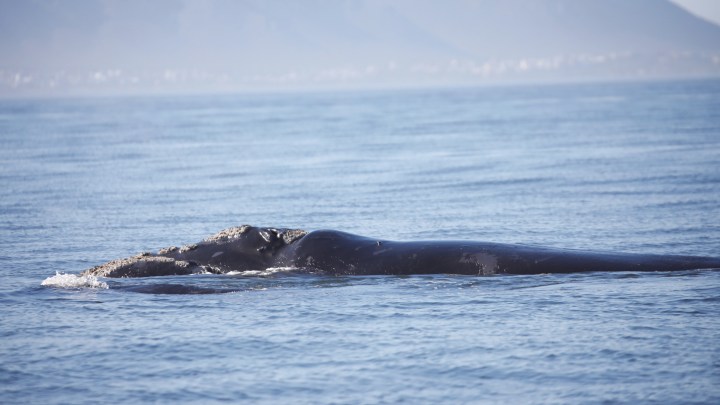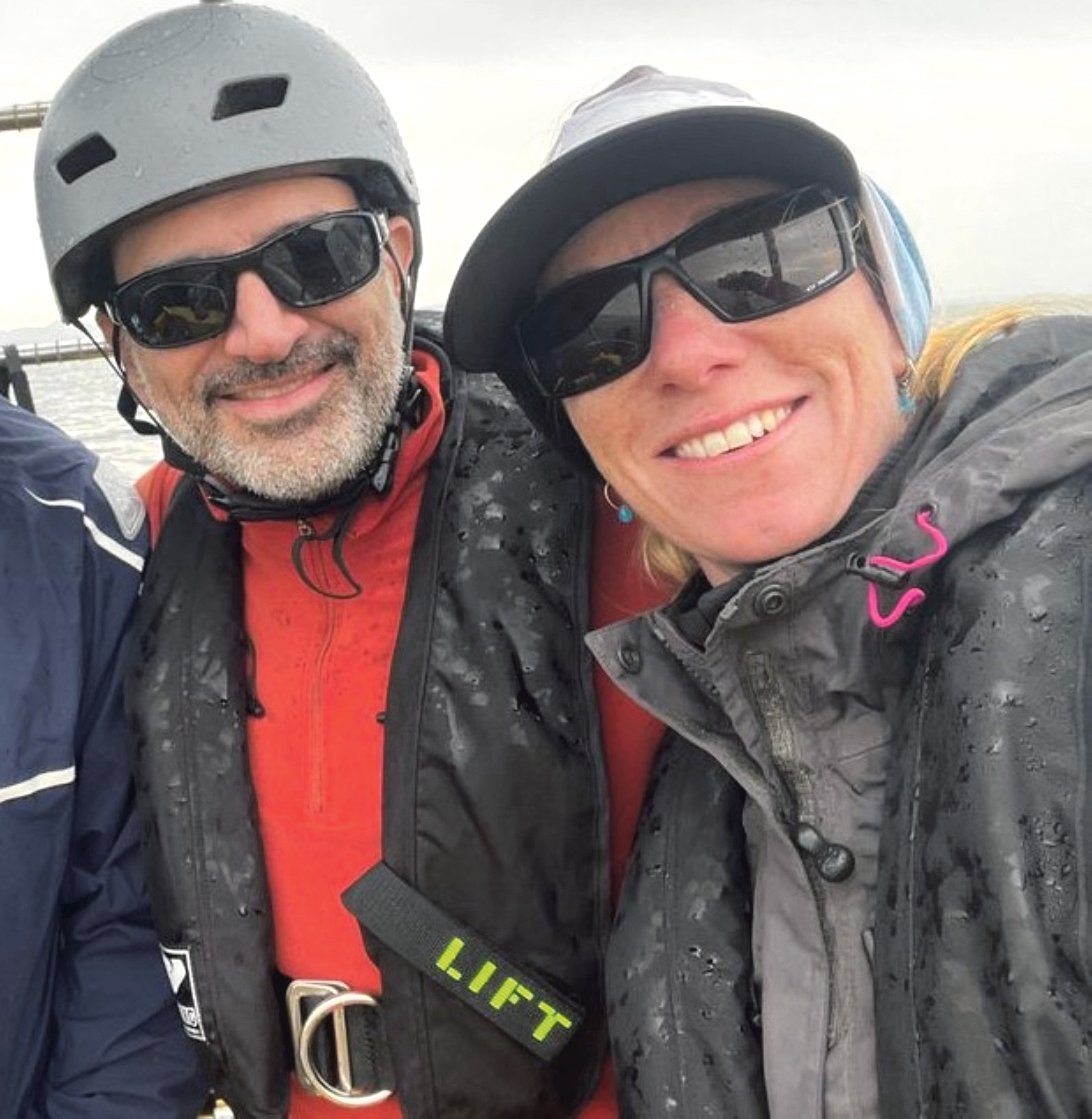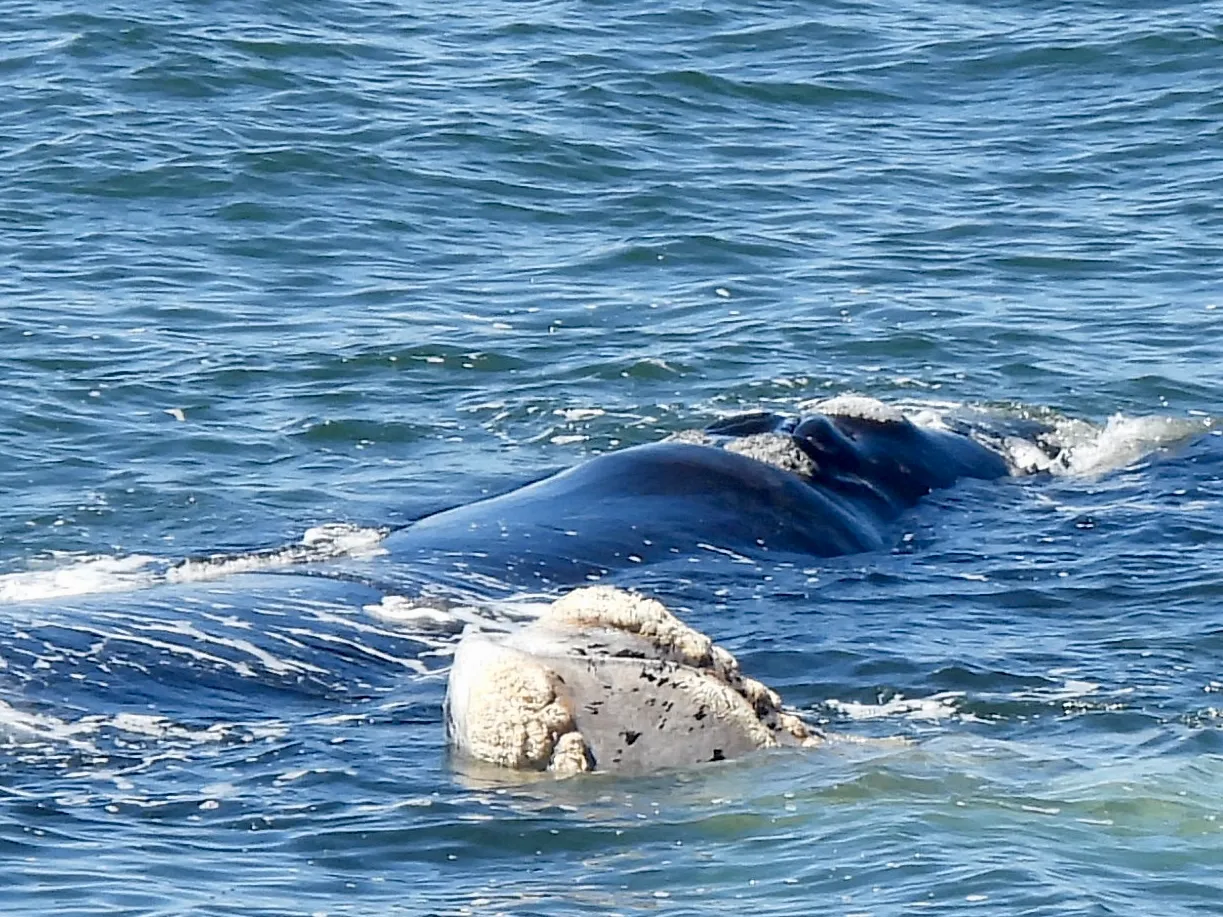WHALE TRAILS
The southern right to protection — tracking the ocean’s threatened gentle giant

Dedicated researchers have tagged 16 whales with electronic equipment that will provide new information about how warming seas and dropping fish populations are affecting their breeding patterns.
Amid the chaos and anguish of a world full of war comes a story of passion and commitment, which will assure you that the planet’s custodians are still fighting for the survival of some of the greatest and gentlest creatures on Earth.
Dr Alexandre Zerbini, Brazilian scientist and luminary in the field of whale conservation, is single-minded in his vision. He is a self-confessed workaholic when it comes to searching for solutions to cetacean survival.
Recently he teamed up with Hermanus-based fellow scientist Dr Els Vermeulen in an international collaborative mission aimed at unlocking some of the mysteries of the deep to learn more about the population of southern right whales that travel vast distances to visit our protected waters.
Read more in Daily Maverick: Recovering southern right whales face new challenge as crucial marginal ice diminishes in foraging grounds
The month-long mission in Hermanus’s Walker Bay involved the electronic tagging of 16 whales, a skill that requires the team on board to pinpoint the exact position on the cetacean’s upper mid-section for the placement of the tag. This part of the whale is the most frequent to surface. The tag’s electronic data-collecting system can only be read and detected through satellite communication once out of water.

Whale conservation scientists Dr Alexandre Zerbini and Dr Els Vermeulen in Hermanus on a mission to understand more about the behaviour and movement of southern rights. (Photo: Supplied)
Dedicated to whales
Listening to a podcast on Zerbini’s role as the chair of the Scientific Committee’s International Whaling Commission and his research role as a marine mammal biologist at the University of Washington and at the US Agency for Ocean and Atmosphere, his wonderment at the ocean’s whale populations is almost akin to discovering the salty depths of our planet with Jules Verne.
You get the feeling that this is not just a career. It began when he was nine years old. One day, while walking on a beach near São Paulo with his parents, he came across a dead dolphin that had been caught in a fisherman’s net.
“It moved me. It saddened me to such an extent that in my prayers I told that dolphin I will work all my life to save creatures like you from dying so needlessly.”
The information gathered on this South African research mission will provide scientists like Zerbini and Vermeulen with vital data on water temperature, the depth to which southern rights dive and what their marine environment is like. In the face of climate change, answers to these persistent questions might make all the difference.
Read more in Daily Maverick: Researchers cite climate crisis as possible reason behind decreased southern right whale migration to SA
The warming of the seas is happening at an accelerated rate. Whatever consequences there are need careful monitoring, says Zerbini, whom I was able to chat with during a morning when the weather was no good for an ocean outing. (Otherwise, he would have been gone, as he says, without a murmur.)
“Some of the most important work on southern rights internationally is being done in Hermanus with Dr Els Vermeulen’s scientific team,” he says. “I would say that this is the global centre of southern right investigation and deserves huge respect and huge recognition.”
We are sitting in a side passage of the functional, no-frills whale unit office in Hermanus. There are a couple of well-worn whale pictures on the wall. I cannot help but think we should be in a dedicated whale research museum, which could be a place where the thousands of visitors to Hermanus and its surrounding areas could gather. But sadly, Vermeulen confirms, there isn’t one — as yet. But there are plans.
On this subject, Zerbini agrees that awareness is a major issue. “In most parts of the world, the southern right populations are in remote areas that few can visit. Hermanus is a tourism hub where the whales and their offspring are easily visible. I think the international whale conservation community would agree that it’s an ideal place for an outreach and education project, using sound and interactive technology to replicate the whale habitat. Imagine children’s joy when they hear the voices of whales for the first time.”

Southern right whale brindle calf face. (Photo: Gabby Zdanielwicz)
In fact, he continues, the work being done now and the vast intelligence gathered by previous scientists in South Africa, such as whale conservation guru Prof Peter Best, are the foundation on which work is being done internationally.
“So, for us collaboration and awareness are essential parts of ongoing research. We now understand, for instance, that when sea temperatures in certain years are warmer, the breeding rate for the southern rights is reduced, as it is for other whale species.”
Under threat
Fellow scientist Belgian-born Dr Els Vermeulen takes up the story of what science still has to figure out about these gentle giants. Like all moms, she says, pregnant whales will choose a comfortable and gentle place to give birth, which is why the softer, sandier, less rocky geology of Die Kelders and De Hoop a little further down the coast are attractive.
But there are some ominous signs too, says Vermeulen, who manages the Pretoria University research division of the Mammal Research Institute’s whale unit.
“From our drone surveys, we discovered that the right whales are thinner than they were years ago simply because they no longer find food in areas where they used to find it.
Vermeulen says: “We know that climatic and oceanographic variability lie at the heart of this and that these whales are being affected by something they have never dealt with before. We intend to find out. That is why global missions like the one that took place in Hermanus this month will have a profound impact on the knowledge we are gathering.”
The tagging process used this month in Hermanus involves sophisticated satellite telemetry technology which is able to decipher information gained from southern rights traversing the thousands of miles between continents like ancient pilgrims using routes that have changed little over time. But could temperature changes in their habitat push them in another direction, or even pose a bigger threat than first thought?
“That’s what we need to know,” says Zerbini. “Accelerated changes in climate as we are experiencing now pose massive conservation challenges. Technology, from acoustic surveying of the ocean floor to satellite beaming, will be the holy grail of our work going into the future. We’re getting better at it all the time.
“The next chapter is mitigating the threat to whales by ship strikes. We are experimenting with real or near-time detection systems which will alert a ship when a whale is in the vicinity. It can’t be done yet but we are hoping that it won’t be long before it can.”
He has one overriding dream, and that is to take the “ing” off “whaling” in the international commission’s name. “If we recognise that whale conservation goes beyond whaling that would be the end goal.”
We return to the voice of a nine-year-old on a beach near São Paulo, dedicating his life to ensure the survival of the great gentle creatures of the ocean. “They need humans to be their friends, not their enemies!” DM
Whales: Some facts
- From June to October the southern right whales give birth and nurse their calves in protected bays along South Africa’s southern Cape coast. The first aerial survey for 2023 on 28 August revealed 556 mothers with calves (1,112 whales) between Hermanus and Witsand. While it’s a good year, says the whale unit’s research manager Dr Els Vermeulen, numbers are misleading. Next year may not be good because the whales are calving every four to five years instead of every three.
- Whales spend 90% of their lives underwater, often far from shore, making them difficult to study. Satellite-monitored radio tags, which can last up to a year, mean their movements and behaviour can be remotely tracked around the world.
- Eleven of the 16 tags deployed this month were donated by the South African Polar Research Infrastructure. The other five were provided by Wildlife Computers.
- The MRI whale unit has done the October count survey since 1969, counting and photographing every single southern right whale. It is one of the longest database monitoring in the world on any mammal.
- The main diet of whales is krill, a tiny crustacean they feed on in the summer, but ocean warming because of climate change decreases suitable habitat for krill to reproduce. If whales don’t get enough krill, a number of females won’t be able to conceive. DM
This story first appeared in our weekly Daily Maverick 168 newspaper, which is available countrywide for R29.






















Comments - Please login in order to comment.